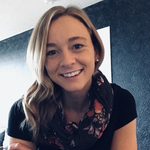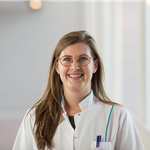- Introduction
Janice Kwon - Genetic Risk for Breast Cancer, 2022
Mark RobsonAt the end of this session, participants will be able to:
1. Recognize the evolution of breast cancer clinical genetics over the last 28 years.
2. Describe the role of genetic testing in the management of people with or at risk for hereditary breast cancer. - Germline testing and tumour testing in ovarian cancer
Janice KwonAt the end of this session, participants will be able to:
1. Review germline testing and tumour testing in ovarian cancer
2. Describe the benefits of reflex tumour testing
3. Estimate the challenges of tumour testing - Break
- Genetic testing: Patient Experience and Resources
Jeanna McCuaig, MSc, PhD, CGC, CCGCResources from the Canadian Association of Genetic Counsellors.
At the end of this session, participants will be able to:
1. Identify genetic testing resources available from the CAGC.
2. Describe how resources may help clinicians facilitate genetic testing. - Mainstreaming – patient experience
Jada Hamilton - Introducing Ovarian Cancer Canada’s latest patient education resource: The power of genetics
Alison RossAt the end of this session, participants will be able to:
1. Describe Ovarian Cancer Canada’s patient education tool for genetic testing.
2. Identify the gap that this tool is intended to fill.
3. Assess how the tool was developed and how it can be used. - Break
- Population-based testing
Ranjit ManchandaAt the end of this session, participants will be able to:
1. Identify the evidence base and rationale of population-based testing.
2. Describe the Pros and cons of population-based testing.
3. Assess the potential applicability of population-based testing. - The Screen Project: Guided Direct-to-Consumer Genetic Testing for Cancer Susceptibility in Canada
Angelina Tryon, MS, CGCAt the end of this session, participants will be able to:
1. Identify the current BRCA genetic testing model in Canada and able to recognize gaps that exist.
2. Describe the study design and results (to date) for Phase II of The Screen Project.
3. Examine and distinguish case examples of newly-identified mutation carriers that pursued genetic testing through The Screen Project. - Break
- Ovarian cancer prevention strategies
Miranda Steenbeek MD, PhD
- Introduction
Shannon Salvador•Danielle VicusAt the end of this session, participants will be able to:
1. Understand the purpose of the meeting
2. Review the history of the CoPs - Meet the active CoPs
Danielle Vicus - Icebreaker game
- Cervantes Trial Discussion
Marie PlanteAt the end of this session, participants will be able to:
1. Discuss the CERVANTES randomized trial of radical surgery followed by adjuvant (chemo) radiation versus no further treatment in patients with early-stage, intermediate-risk cervical cancer. - Plenary
Danielle Vicus - 30-minute Breakouts
At the end of this session, participants will be able to:
1. Discuss what the CoPs have accomplished in 2022.
2. Explore the 2023 goals of the CoPs considering the following categories: education, research, and communications.
3. Select those who will represent the CoPs during the second breakout.
The list of Active CoPs:
• CoP in Cervix Cancer Prevention and Control
• CoP in ERAS & VTE
• CoP in GTN-GTD
• CoP in Immunotherapy
• CoP in LGSC and Rare Diseases
• CoP in Medical Cannabis
• CoP in MIS
• CoP in Obesity
• CoP in QI - Breakout Summaries
At the end of this session, participants will be able to:
1. Produce a summary of the discussion from the first breakout.
The list of Active CoPs:
• CoP in Cervix Cancer Prevention and Control
• CoP in ERAS & VTE
• CoP in GTN-GTD
• CoP in Immunotherapy
• CoP in LGSC and Rare Diseases
• CoP in Medical Cannabis
• CoP in MIS
• CoP in Obesity
• CoP in QI - Networking Break
- Plenary
Danielle Vicus - 45-minute Breakouts
At the end of this session, participants will be able to:
1. Discuss the following themes: research, education, communications considering the impact of the 2023 projects, purpose and audience.
The list of departments:
• Research Unit
• Education
• Communications - 2nd Breakout Summaries
Danielle Vicus - Conclusion
Danielle Vicus - GOC Member’s Meeting – GOC’s Financials and Audit
Active Members only meeting











